

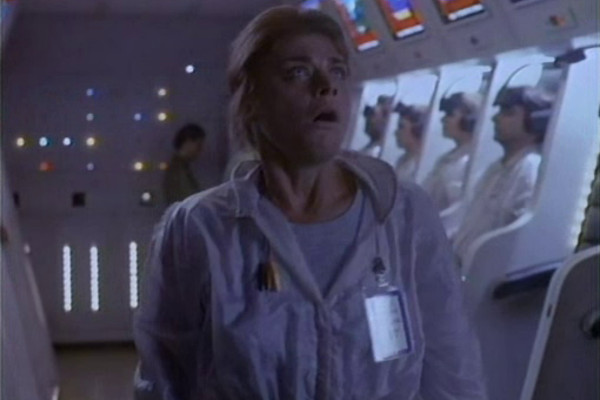
Almost inarguably the least substantial narrative of the season, whereby halfway through a short 9 minute story we get the "twist" that Meg Foster is in an artificial reality... something rather given away by the title. She returns to the reality, and her possible death, but, like many of the shorter stories, it feels like the traditional three-act structure has been abandoned.
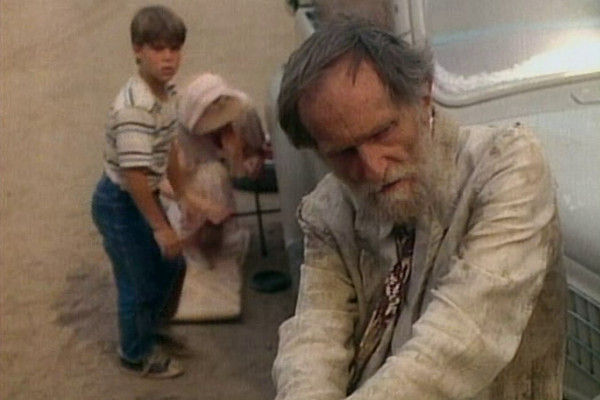
A strong ending marks out this horror tale based on a 1978 short story by Ray Bradbury. Sadly, what proceeds it is too unfocussed, dulling the effect. Roberts Blossom plays a deranged hitch-hiker who rants almost incoherently about the nature of evil to an aunt and her young nephew as they drive to a lake. Blossom manages to be alternately humorous, sympathetic, and vaguely irritating, yet never quite the sinister the part should call for. Worse, the story leads to a bizarre slow-mo lakeside dip, which further dilutes any growing sense of dread, as does the unnecessarily incongruous 1930s setting. At its heart The Burning Man is an eerie, unsettling horror piece... in execution, its somewhat muddled and lacking real focus.
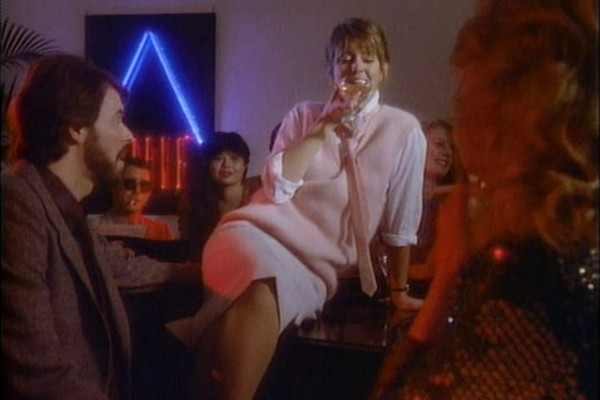
Pam Dawber was one of the more familiar stars the show had when it aired, appearing during the gap between her two sitcoms Mork and Mindy and My Sister Sam. A reasonably likeable, comic tale of a put upon secretary achieving emancipation from an unappreciative boss, it also contains a role for Jonathan Frakes as a sleazy party guest.
One purported issue with the DVD release of the 1980s series is that some of the episodes are said to be trimmed or edited. It's not clear if this is actually true or just rumoured, with the internet giving little confirmation. However, this particular tale is said to have lost a scene or two, and does appear disjointed. That said, when your story is a light piece about a photocopier that acts as a gateway to parallel dimensions, how coherent can the narrative be?
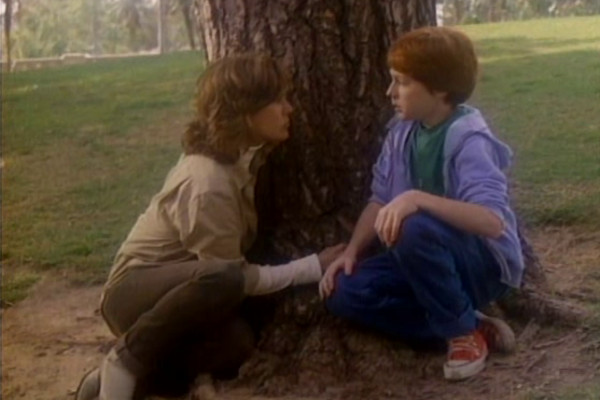
Only nine of the stories in season one had a female writer involved, with only half a dozen of them featuring a woman writing solo. It's somewhat of a shame then that this script by Lynn Barker is so misguided to the point of being archaic. A female photographer (Season Hubley) chooses a career over getting married and having children with her boyfriend, and is visited by her red-headed child of an alternate future.
Revealing to the child that she will one day have children, the child laments that they won't be him, and that by choosing to delay getting pregnant, he'll never exist. It's possible to suspect that this was written as an abortion analogy, and lightened at the script editing stage, but whatever the real background, it's borderline offensive for the world of the Twilight Zone to bring forward a non-existent child to make a working woman feel guilty for daring to make her own life choices.
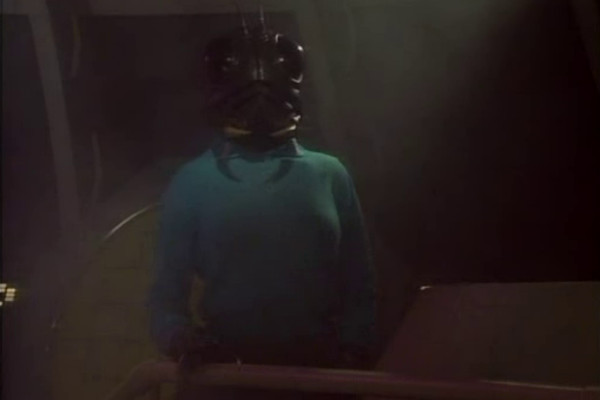
Set in the 1950s, this postmodern UFO tale from the writer of Star Trek: The Trouble With Tribbles isn't fundamentally bad like many of the other entries this low down in the ranking. However, a TV show has to establish itself, and concluding the season with an episode that contains ironically hammy acting may be mistaken as genuinely hammy acting by members of the mainstream audience the series was aimed at.
Experimenting with high camp, Dutch angles and a jarring score by Fred Steiner, it presents what could have been a reasonable story - albeit a highly derivative one - and reconfigures it as a joke.
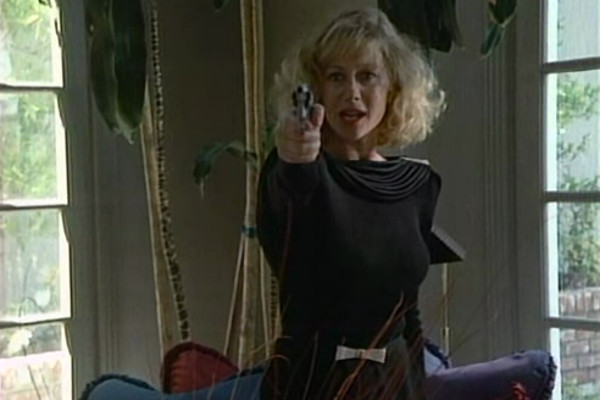
Helen Mirren dons an American accent and plays a character with a wide range of personality - a mousey charity shop worker and the spirit of a vengeful rich murder victim when she puts on the deceased's shoes. A gender-reversed remake of the original series story Dead Man's Shoes, this one does force Mirren to say some corny lines ("it's judgement day!") but does improve with repeated viewings. With all the shoulder pads, frizzy hair and soft porn soundtrack by Craig Safan, it does scream "1980s" more than almost any other episode, but, when worked at, the quality of Mirren's performance can be appreciated when extracted from the unintentional camp.
Charles Aidman (who had acted in original series episodes And When the Sky Was Opened and Little Girl Lost) performed the role of narrator for the first two seasons of the 1980s revival. He doesn't appear on screen like Serling did (or, in the 2002 revival, Forest Whitaker) so doesn't get to make the same impact, but is generally fine. Here he's forced to deliver his worst narrative script, with the distinctly unSerling-like observation that things go "all wonky".
![]()
Possibly worth the price of admission just to see a ten-year-old Giovanni Ribisi, this is the last of the below-par episodes from the season, but it's not horrible. Featuring a man whose car breaks down in the middle of nowhere, he discovers a small town environment where a light house - thanks to an astonishingly poor matte painting - acts as a form of God over the town, where sacrifices are given. "Ridiculous" says the stranded man... and it's hard not to disagree. The resolution to a lacklustre affair sees it conclude like a cut price version of The Wicker Man, a cheap and unenthused instalment that even the presence of Martin Landau in a fake beard can't rescue.
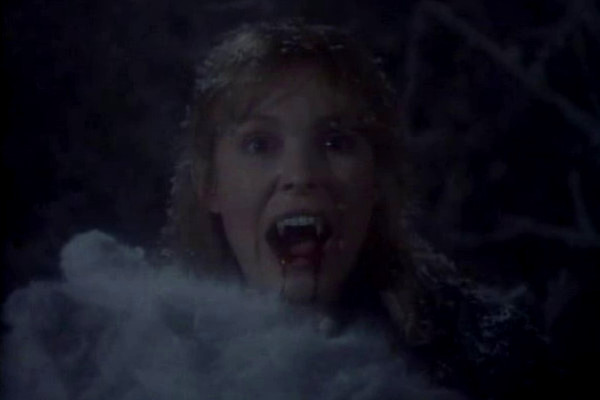
A dreary vampire tale set in Russia and featuring just one Russian actor, Red Snow sees analogies between Soviet rule and those outcast. Heavy-handed in a very 80s Cold War fear way, it manages to go almost half an hour without ever really getting out of first gear. With all taking it seriously, it's superior to the episodes below it in this ranking, but nowhere near as much fun.